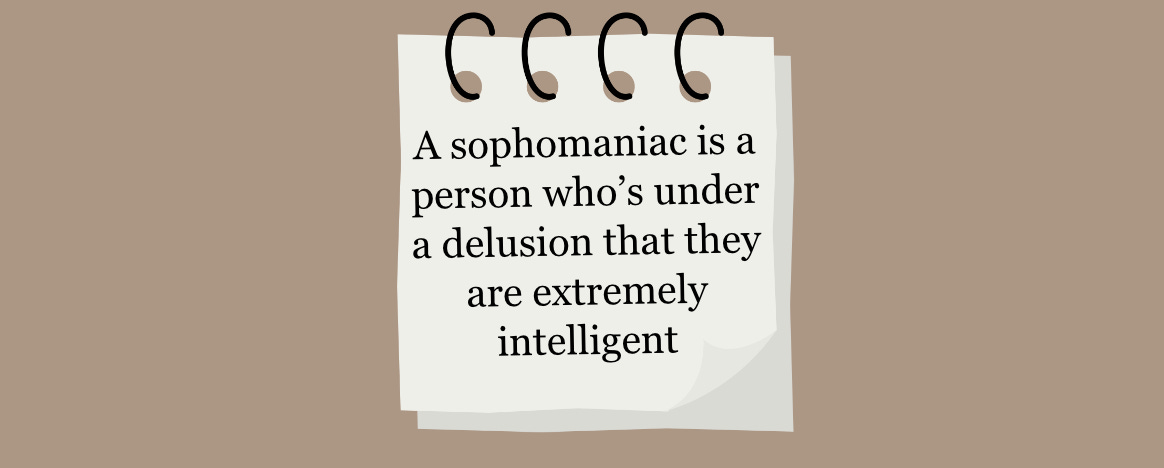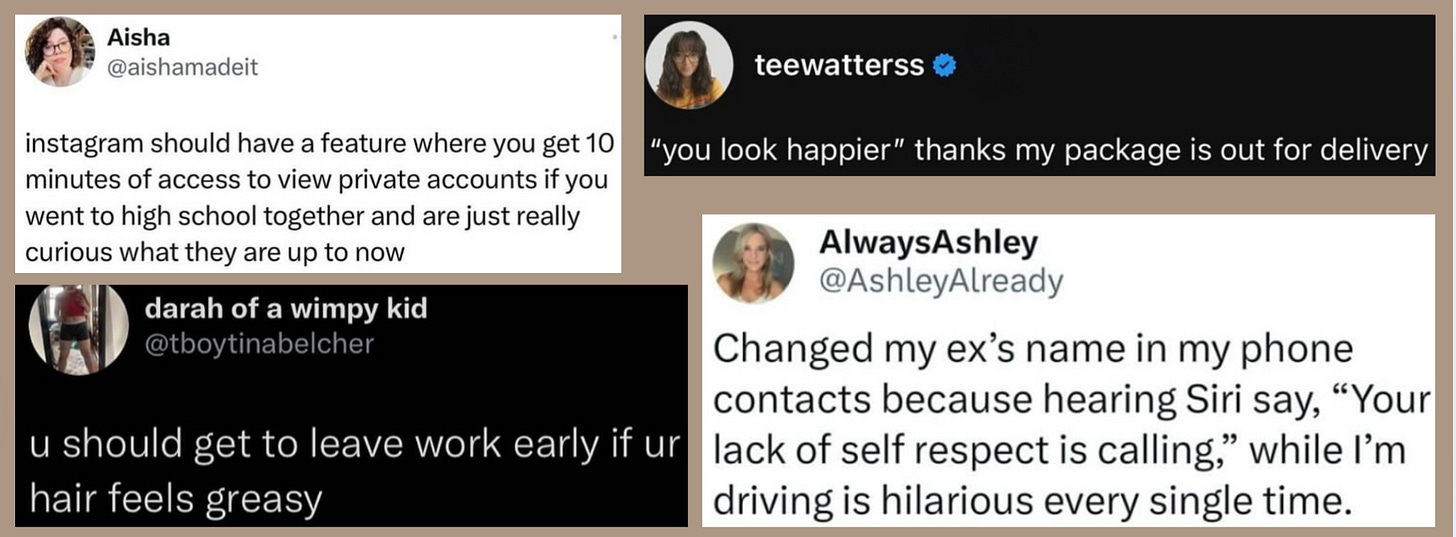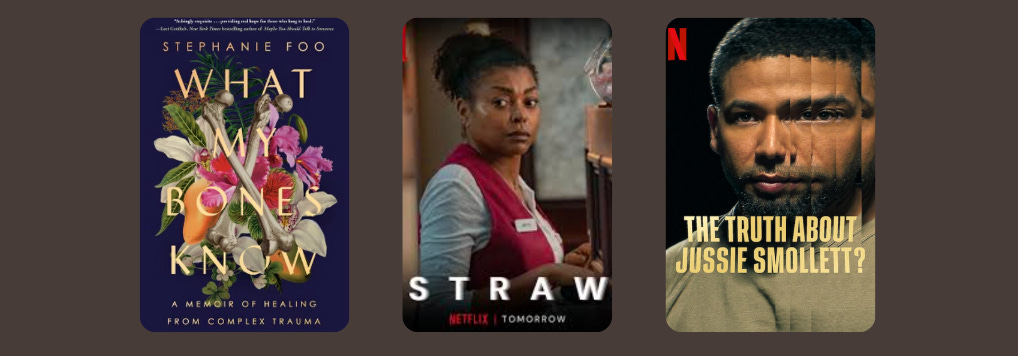Divided We Scroll
The United States of Aggravation: How We All Got So Mad Online
Somehow, over dinner, we got into the topic of Christmas trees. (I know it’s September. I don’t make the rules.)
Since this will be our first Christmas in the new house, I told the kids we actually have two Christmas trees now and might even put up both. My son, without missing a beat, goes, “Oh… so there will only be one nice one?”
I jumped in, full mom mode: “Noooo, I love how you and your sister decorate the tree!”
And he goes, deadpan: “No, I meant ours will be the nice one.”
LOL. The confidence. The shade. I was speechless.
Oh okayyy.
The episode of A Really Good Cry from 08/19th was SO GOOD, highly recommend listening—not sure if it’s the season of life I’m in or not, but it really made me think. (especially as someone who’s had anxiety come out of nowhere this year)
Below are my rough notes/things that stuck with me:
Avoiding pain can seem like self-protection but over time it just becomes self-abandonment.
Unprocessed pain doesn’t disappear when the moment has passed, it’s still in your body and your nervous system (uh, rude). It shows up in how you react when someone gets too close, how you fear failure, how you doubt yourself even in success.
Avoidance can be subtle: overthinking, overworking, over-controlling. Like when someone doesn’t like you, and instead of facing it, you overcompensate with kindness to avoid the discomfort. It can look like drinking to cope, leaving relationships when they get hard or good, procrastinating out of fear, or saying yes to avoid conflict. It can look like not wanting to revisit past trauma, or saying “I don’t need anyone,” when really, you’re afraid of being hurt again.
These habits might work for a while, but eventually they resurface—as anxiety, exhaustion, illness, or strained relationships.
Avoiding pain can seem like self-protection but over time it just becomes self-abandonment.
Sometimes we think we're doing the hard thing, but we're just choosing the version of hard that feels familiar, earns approval, or looks difficult from the outside. The real hard might be having the painful conversation, sitting with our thoughts instead of staying busy (I feel attacked), facing our patterns instead of blaming luck, or letting ourselves be fully seen (mess and all).
The more hard things you push yourself to do, the more competent you will see yourself to be and the easier it becomes to stop avoiding them. For example, if you can run marathons or throw double your body weight, newborn sleep deprivation is just a mild annoyance. But if you avoid hard things, even mild challenges start to feel impossible (ugh, me lately).
Doing something hard in your personal life helps you show up better physically. Tackling a physical challenge builds resilience that carries over into your work, relationships, and your ability to face other difficult things.
This conversation stuck with me so much I’m thinking about diving deeper into it in another newsletter. If it resonated, let me know!
What My Bones Know: Just started reading this memoir, and the beginning is hard to read because it’s so sad. She’s a beautiful writer, can’t wait to finish this.
Straw: It’s about a single mom who has a day with a series of unfortunate events. I don’t want to give too much away but this was incredibly powerful and sad. Such a good movie.
The Truth About Jussie Smollett?: This was so interesting and has me thinking he’s innocent. I completely forgot about this!
To everyone who’s signed up for the paid portion: you are the wind beneath my extremely opinionated wings. Thank you. I know there are approximately 900 streaming platforms, 47 newsletter subscriptions, and a partridge in a pear tree vying for your dollars, so I don’t take it lightly.
And if you’ve been curious but hesitant (no pressure at all!), just know the $5/month option isn’t a blood pact. You can cancel anytime with a single, commitment-free click (no breakup texts required). It helps me so much.
And bonus! When you sign up, you get access to all the past paywalled posts.
On Wednesday, Charlie Kirk was shot and killed at a public event at Utah Valley University. The video—gory, graphic, and deeply unsettling—was livestreamed like a piece of dystopian content.
I vehemently disagreed with almost everything Kirk stood for. Politically, we were in entirely different zip codes, maybe even different planets. But none of that mattered in that moment. My heart broke for him, for his family, and for the fact that someone exercising his right to speak was publicly executed in real time.
I didn’t expect it to affect me the way it did, but it stuck with me all day and into the next. So much so that by the next morning, I was blurting it out to my therapist like, “Hey, so... I think I might be emotionally spiraling over a guy I didn’t even like?”
The more I thought about it, the more I realized: it wasn’t just the act of violence. It was what came after. The hate. The finger-pointing. The cheering. The chaos. And the sense that we’ve become so divided, so consumed by “sides,” that we’ve stopped recognizing tragedy as tragedy. Like this is some sort of twisted ideological Squid Game and we’re just waiting to see who gets eliminated next.
It made me feel like something is broken. Not just in our politics, but in us.












